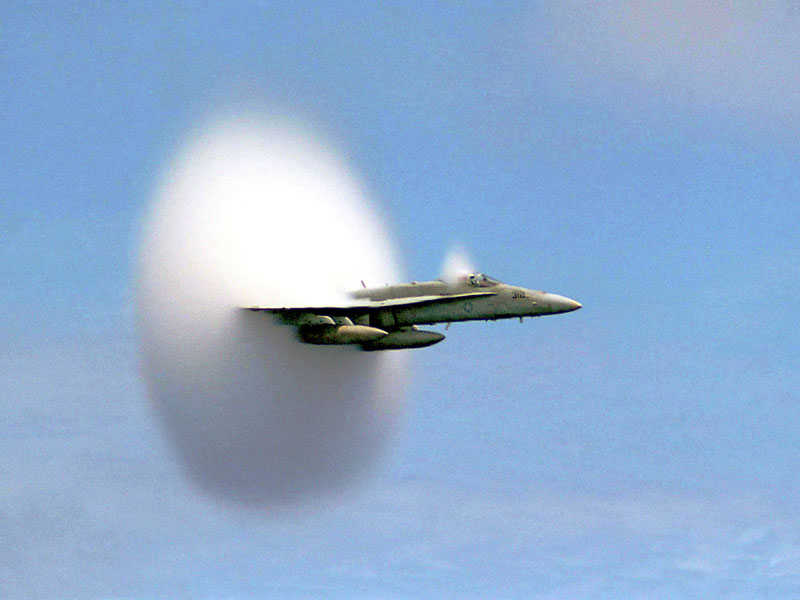
|
Credit & Copyright: Ensign John Gay,
USS Constellation,
US Navy
Explanation:
Is this what a sonic boom looks like?
When an airplane travels at a speed faster than sound,
density waves of sound emitted by the plane
cannot precede the plane, and so
accumulate in a cone behind the plane.
When this
shock wave passes, a listener hears all at once the sound emitted over a longer
period: a
sonic boom.
As a plane accelerates to just break the
sound barrier, however, an unusual cloud might form.
The origin of this cloud is still debated.
A leading theory is that a drop in air pressure at the plane
described by the
Prandtl-Glauert Singularity occurs so that moist air
condenses there to form water droplets.
Above, an
F/A-18 Hornet was photographed just as it
broke the sound barrier.
Large meteors and the
space shuttle frequently produce audible
sonic booms
before they are slowed below sound speed by the
Earth's atmosphere.
|
January February March April May June July August September October November December |
| ||||||||||||||||||||||||||||||||||||||||||||||||
NASA Web Site Statements, Warnings, and Disclaimers
NASA Official: Jay Norris. Specific rights apply.
A service of: LHEA at NASA / GSFC
& Michigan Tech. U.
Based on Astronomy Picture
Of the Day
Publications with keywords: sonic boom
Publications with words: sonic boom
See also:
